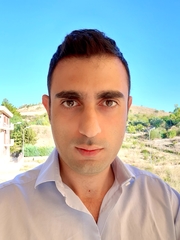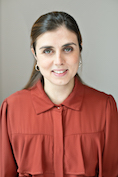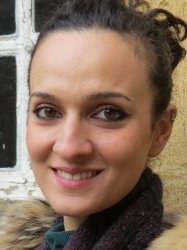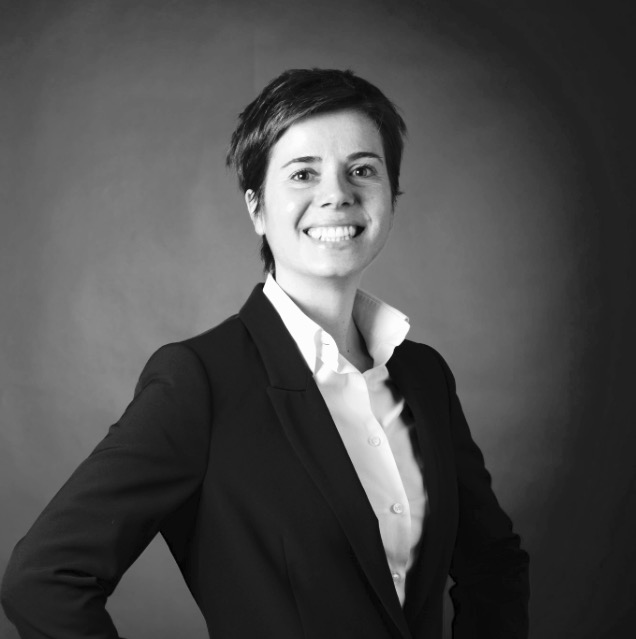Studying at the University of Verona
Here you can find information on the organisational aspects of the Programme, lecture timetables, learning activities and useful contact details for your time at the University, from enrolment to graduation.
Academic calendar
The academic calendar shows the deadlines and scheduled events that are relevant to students, teaching and technical-administrative staff of the University. Public holidays and University closures are also indicated. The academic year normally begins on 1 October each year and ends on 30 September of the following year.
Course calendar
The Academic Calendar sets out the degree programme lecture and exam timetables, as well as the relevant university closure dates..
| Period | From | To |
|---|---|---|
| Primo semestre (lauree) | Sep 19, 2022 | Jan 13, 2023 |
| Periodo generico | Oct 1, 2022 | May 31, 2023 |
| Secondo semestre (lauree) | Feb 20, 2023 | May 31, 2023 |
| Session | From | To |
|---|---|---|
| Sessione invernale (lauree) | Jan 16, 2023 | Feb 17, 2023 |
| Sessione estiva (lauree) | Jun 1, 2023 | Jul 14, 2023 |
| Sessione autunnale (lauree) | Aug 28, 2023 | Sep 22, 2023 |
| Session | From | To |
|---|---|---|
| Sessione autunnale | Dec 5, 2022 | Dec 7, 2022 |
| Sessione invernale | Apr 4, 2023 | Apr 6, 2023 |
| Sessione estiva | Sep 5, 2023 | Sep 7, 2023 |
Exam calendar
Exam dates and rounds are managed by the relevant Economics Teaching and Student Services Unit.
To view all the exam sessions available, please use the Exam dashboard on ESSE3.
If you forgot your login details or have problems logging in, please contact the relevant IT HelpDesk, or check the login details recovery web page.
Should you have any doubts or questions, please check the Enrollment FAQs
Academic staff
 silvano.corbella@univr.it
silvano.corbella@univr.it
 simona.fiore@univr.it
simona.fiore@univr.it
 tamara.fioroni@univr.it
tamara.fioroni@univr.it
 cecilia.mancini@univr.it
cecilia.mancini@univr.it
 martina.menon@univr.it
martina.menon@univr.it
 cosimo.munari@univr.it
cosimo.munari@univr.it
 alex.sclip@univr.it
alex.sclip@univr.it
Study Plan
The Study Plan includes all modules, teaching and learning activities that each student will need to undertake during their time at the University.
Please select your Study Plan based on your enrollment year.
1° Year
| Modules | Credits | TAF | SSD |
|---|
2° Year activated in the A.Y. 2023/2024
| Modules | Credits | TAF | SSD |
|---|
3° Year It will be activated in the A.Y. 2024/2025
| Modules | Credits | TAF | SSD |
|---|
2 modules among the following| Modules | Credits | TAF | SSD |
|---|
| Modules | Credits | TAF | SSD |
|---|
| Modules | Credits | TAF | SSD |
|---|
2 modules among the following| Modules | Credits | TAF | SSD |
|---|
Legend | Type of training activity (TTA)
TAF (Type of Educational Activity) All courses and activities are classified into different types of educational activities, indicated by a letter.
Type D and Type F activities
SOFT SKILLS
Find out more about the Soft Skills courses for Univr students provided by the University's Teaching and Learning Centre: https://talc.univr.it/it/competenze-trasversali
CONTAMINATION LAB
The Contamination Lab Verona (CLab Verona) is an experiential course with modules on innovation and enterprise culture that offers the opportunity to work in teams with students from all areas to solve challenges set by companies and organisations.
Upon completion of a CLab, students will be entitled to receive 6 CFU (D- or F-type credits).
Find out more: https://www.univr.it/clabverona
PLEASE NOTE: In order to be admitted to any teaching activities, including those of your choice, you must be enrolled in the academic year in which the activities in question are offered. Students who are about to graduate in the December and April sessions are therefore advised NOT to undertake extracurricular activities in the new academic year in which they are not enrolled, as these graduation sessions are valid for students enrolled in the previous academic year. Therefore, students who undertake an activity in an academic year in which they are not enrolled will not be granted CFU credits.
| years | Modules | TAF | Teacher |
|---|---|---|---|
| 1° 2° 3° | Ciclo tematico di conferenze: “Conflitti. Riconoscere, prevenire, gestire” - 2022/2023 | D |
Riccardo Stacchezzini
(Coordinator)
|
| 1° 2° 3° | Securitisation transactions - Focus on securitisations of OF NPL / NPE /UTP | D |
Michele De Mari
(Coordinator)
|
| 1° 2° 3° | The Fashion Lab - 2022/23 | D |
Caterina Fratea
(Coordinator)
|
| years | Modules | TAF | Teacher |
|---|---|---|---|
| 1° 2° 3° | Economic Thinking and Thesis Writing | D |
Marco Minozzo
(Coordinator)
|
| 1° 2° 3° | English for Business and Economics - Bachelor's Degrees | D |
Marco Minozzo
(Coordinator)
|
| 1° 2° 3° | Data Analysis Laboratory with R (Verona) | D |
Marco Minozzo
(Coordinator)
|
| 1° 2° 3° | Data Visualization Laboratory | D |
Marco Minozzo
(Coordinator)
|
| 1° 2° 3° | Python Laboratory | D |
Marco Minozzo
(Coordinator)
|
| 1° 2° 3° | Data Science Laboratory with SAP | D |
Marco Minozzo
(Coordinator)
|
| 1° 2° 3° | Advanced Excel Laboratory (Verona) | D |
Marco Minozzo
(Coordinator)
|
| 1° 2° 3° | Excel Laboratory (Verona) | D |
Marco Minozzo
(Coordinator)
|
| 1° 2° 3° | Piano di marketing 2022/23 | D |
Fabio Cassia
(Coordinator)
|
| 1° 2° 3° | Programming in Mathlab | D |
Marco Minozzo
(Coordinator)
|
| 1° 2° 3° | Programming in SAS | D |
Marco Minozzo
(Coordinator)
|
| years | Modules | TAF | Teacher |
|---|---|---|---|
| 1° 2° 3° | Business & predictive analytics for International Firms (with Excel Applications) - 2022/23 | D |
Angelo Zago
(Coordinator)
|
| years | Modules | TAF | Teacher |
|---|---|---|---|
| 1° 2° 3° | The Chartered Accountant as a business consultant | D |
Riccardo Stacchezzini
(Coordinator)
|
| years | Modules | TAF | Teacher |
|---|---|---|---|
| 1° 2° 3° | Project "B-EDUCATION: ideas that count" - 1 cfu | D |
Roberto Bottiglia
(Coordinator)
|
| 1° 2° 3° | Project "B-EDUCATION: ideas that count" - 2 cfu | D |
Roberto Bottiglia
(Coordinator)
|
Econometrics (2024/2025)
Teaching code
4S01951
Teacher
Coordinator
Credits
9
Language
Italian
Scientific Disciplinary Sector (SSD)
SECS-P/05 - ECONOMETRICS
Period
Primo semestre L dal Sep 23, 2024 al Jan 10, 2025.
Courses Single
Authorized
Learning objectives
The course provides the main econometric tools to develop, based on the available data, an empirical analysis on the relationship between economic variables and to correctly interpret and use the results obtained. In fact, many economic decisions require quantitative answers to quantitative questions, and decisions based on empirical evidence are generally considered more helpful and effective.
The course uses a scientific language based on deductive reasoning. Technical aspects of econometrics, however, will be introduced only when necessary, whereas key attention will be given to the development of an intuitive comprehension of the material, in such a way to allow for an effective and creative use of the acquired knowledge.
At the end of the course the student is expected to (a) have critical skills with respect to empirical applications made by others and (b) be able to autonomously set up and run empirical analyses in the broad areas of economics and finance.
Prerequisites and basic notions
We require basic knowledge of calculus. The course material relies on prior knowledge of basic statistics and probability theory.
Program
1. INTRODUCTION (Stock-Watson, ch.2-3)
1.1. What is econometrics?
1.2. Probability
1.3. Statistics
2. REGRESSION ANALYSIS (Stock-Watson, ch.4-9)
2.1. Linear regressione with a single regressor and hypothesis testing
2.2. Linear regression with multiple regressions and hypothesis testing
2.3. Diagnostics of the regression model: specification, heteroskedasticity, autocorrelation
3. EXTENSIONS (Stock-Watson, ch.10-12)
3.1. Regression with instrumental variables
3.2. Regression with binary dependent variable
3.3 Regression with panel data
Bibliography
Didactic methods
This module is composed of 72 hours of frontal lectures. During the semester students will be given problem sets to attempt at home to encourage systematic studying and self-feedback. In addition, a designated tutor will present additional questions and empirical problems to equip students with knowledge of the software Gretl.
Learning assessment procedures
The exam is made of one written exam and one individual homework. In order to pass the exam, it is necessary to obtain a grade not below 18/30 in the written exam.
The written exam lasts two hours and covers the whole program of the module. It is possible to use a calculator, but neither notes nor other teaching material. Students have the option of taking the exam in two parts, the first one during the week of 7-11 November (dates to be confirmed), the second part during the first exam session in January. Details of the topics covered in the first half of the exam will be made available on Moodle in due course. The passing mark for the first part is set at 16/30.
The final grade is the average of the grades in the two parts.
The homework can be of two types (Homework 1 and Homework 2). Each student is free to choose either Homework 1 or Homework 2 but must deliver one of them. Once the deadline for delivery of Homework 2 has expired, it is possible to deliver Homework 1 only. The homework grade remains valid throughout the academic year.
Homework 1
The homework aims to develop critical skills with respect to empirical applications. Each student is free to choose one article from www.lavoce.info, www.voxeu.org/, www.ilsole24ore.com or other webiste, provided that it discusses an economic topic and makes use of data.
The homework consists in an essay of max. 2000 words, to be delivered to the address diego.lubian[at]univr.it within the day in which the exam is scheduled. The homework will pass through an antiplagiarism analysis by means of the Compilation software; it is advisable to make a personal preliminary analysis before submitting the homework.
The essay must be divided in sections in such a way to contain a) a reference to the chosen article (title, authors, link), b) a summary of the article, briefly describing its motivation, goal, methodology and results, and c) a critical comment on the methodology, also proposing alternative analyses and possible future developments. The essay must also report the word count.
Homework 2
The homework aims to develop analytical skills through personal data analysis in Gretl. Any student interested in this homework must write to the address diego.lubian[at]univr.it communicating name, surname and ID number. He or she will then receive a number, corresponding to the dataset to be used. The text of the homework will be made available at the end of the lectures; the solution must be delivered by email within the following three days.
Evaluation criteria
To obtain full marks, students should show knowledge of the various econometric methodologies to understand and solve the diverse issues posed by regression models.
Criteria for the composition of the final grade
The final grade is given by the average of the grades in the essay and the homework, with 75% and 25% weights respectively.
Exam language
Italiano
Career prospects
Module/Programme news
News for students
There you will find information, resources and services useful during your time at the University (Student’s exam record, your study plan on ESSE3, Distance Learning courses, university email account, office forms, administrative procedures, etc.). You can log into MyUnivr with your GIA login details: only in this way will you be able to receive notification of all the notices from your teachers and your secretariat via email and soon also via the Univr app.

 045 8028525
045 8028525
























